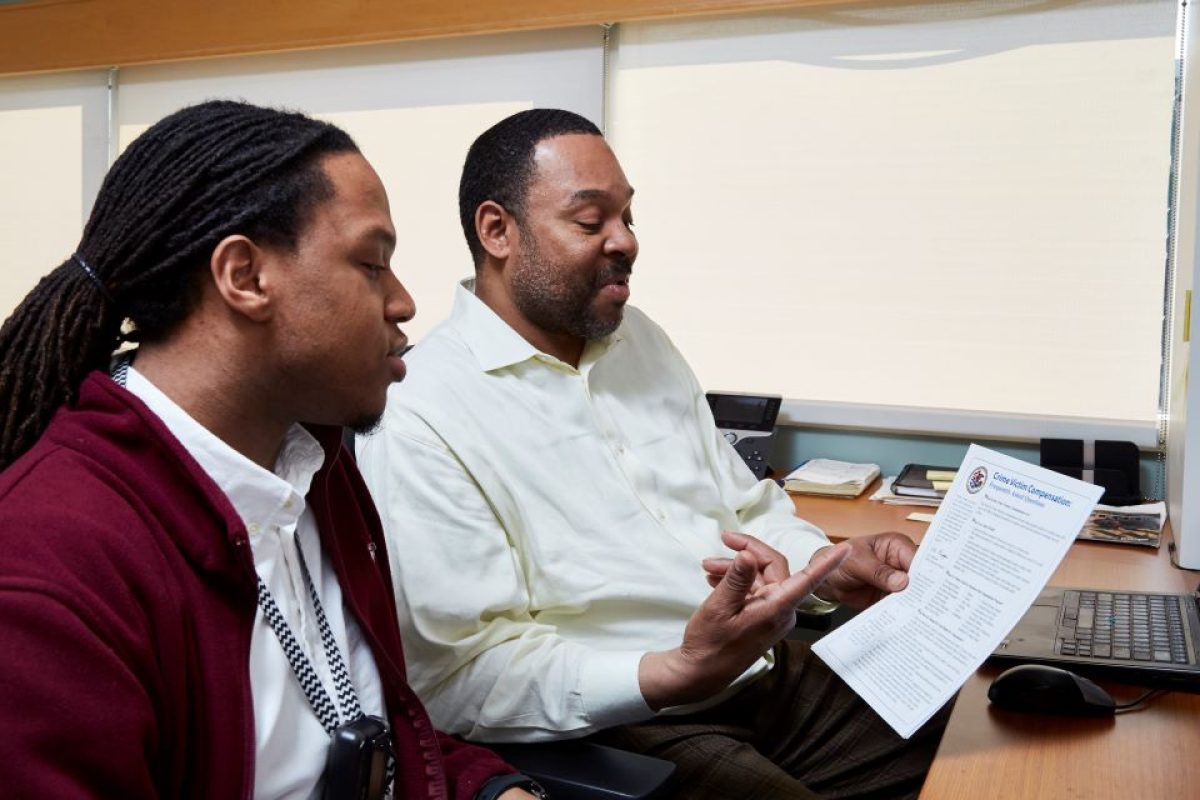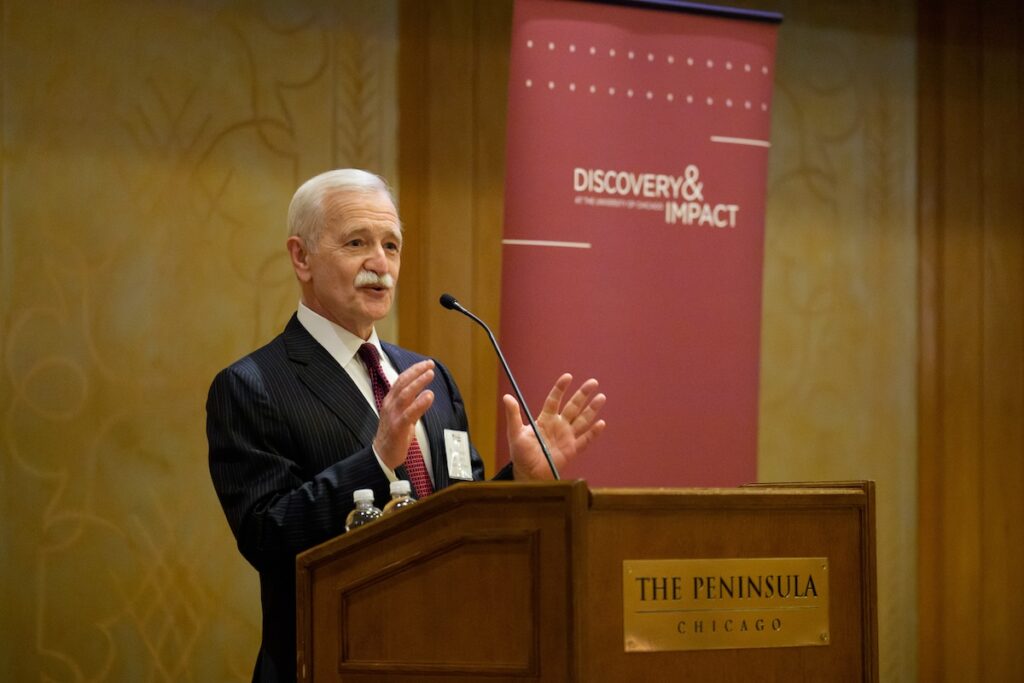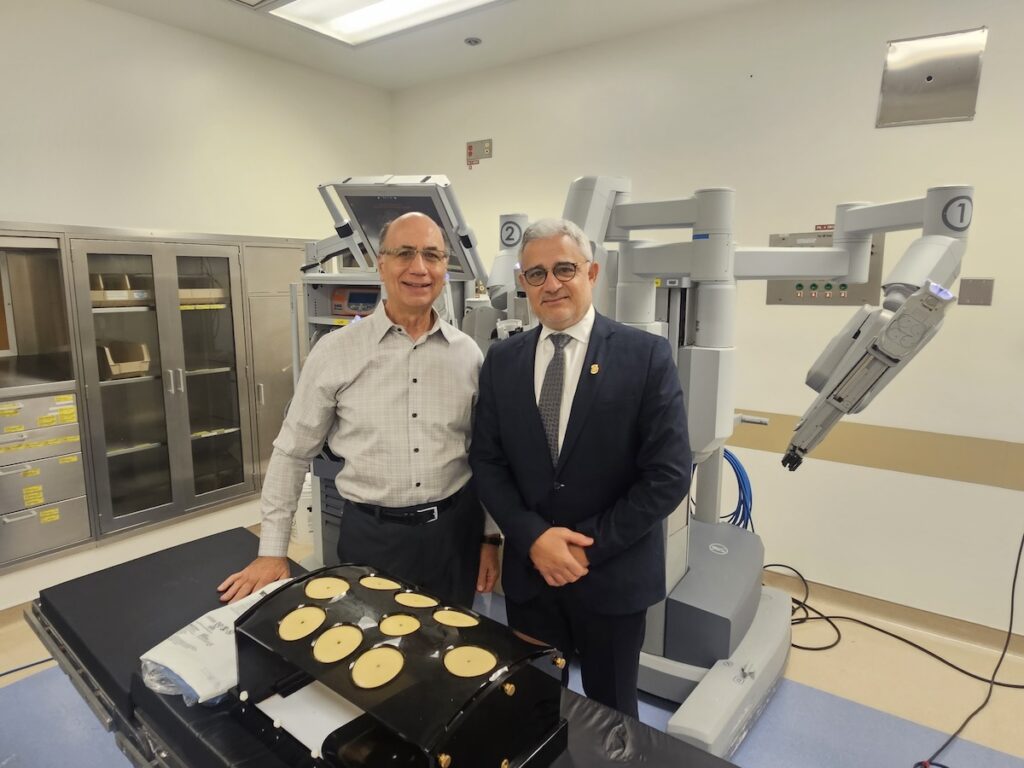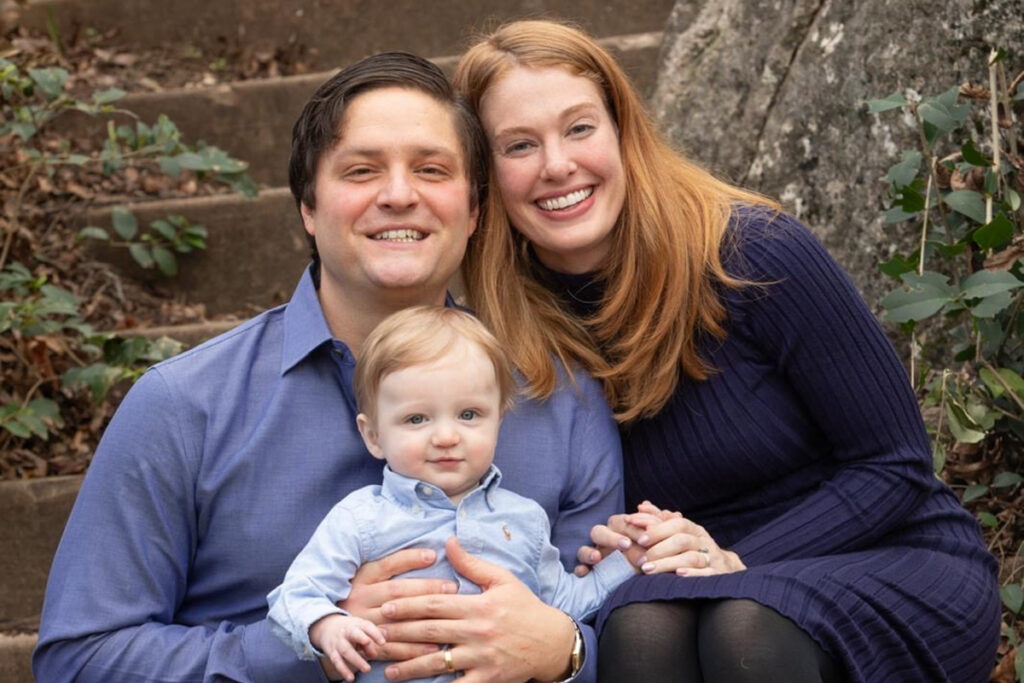The process of healing after a violent encounter lasts long after a patient’s release from the emergency room. When the University of Chicago Medicine’s Adult Level 1 Trauma Center opened in May 2018, the hospital also launched the Violence Recovery Program (VRP) with the mission of providing survivors with care beyond treatment of physical wounds.
The VRP works with patients and their families, connecting them to a network of dozens of local community partners who can assist with food insecurity, rehousing or relocating out of Chicago, mental health support, or financial assistance.
The VRP comprises six teams of specialists covering spiritual care, child life, social work, mental health, clinical programs, and violence recovery. Many of the violence recovery specialists have personal experience with violence against family and friends and have pursued training and careers in counseling in response. The number of violence recovery specialists has grown from two to 15 since the VRP was founded, allowing the program to provide 24-hour coverage. The addition of the most recent hire, Martinez Sutton, was made possible through a philanthropic gift from the Silverman family.
“The medical center has a unique role because of its geographic location and the way the University operates in the community,” said Scott Silverman, who is a University of Chicago Medical Center Trustee. “The program recognizes that violence doesn’t just affect the individual, but also has lasting effects on the physiology of the survivor, the family, the community.”
Franklin Cosey-Gay, PhD, MPH, joined the VRP as director in November 2021. Under his leadership, the VRP strengthened partnerships with local organizations, including the Metropolitan Family Services’ Metropolitan Peace Initiatives and Advocate Health Care, to reach and support community members. In addition to organizing street outreach teams, these organizations also help connect patients with support services.

The program recognizes that violence doesn’t just affect the individual, but also has lasting effects on the physiology of the survivor, the family, the community.
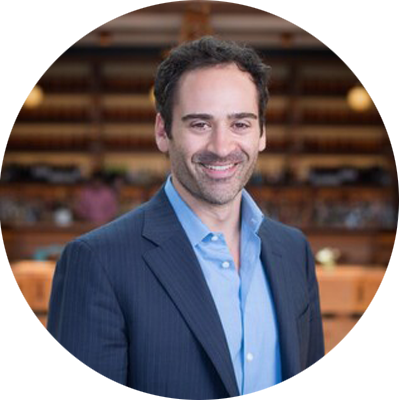
Scott Silverman
University of Chicago Medical Center Trustee
“We will have healthier communities, in the very literal sense, if we can connect those communities to the financial and social safety net resources they deserve,” said Cosey-Gay.
Now in its fifth year, the VRP continues to expand with the addition of legal aid specialists and an evaluation coordinator. The VRP is also expanding case management—the ongoing connection with survivors after they are discharged from the hospital—to about 50 percent of patients, up from 35 percent in 2019. Case management helps prevent reinjury and recidivism and connects a patient to resources according to their individual needs. “I like to be involved in things that have high impact, in this case, leveraging existing programs and services. There is value in the Violence Recovery Program’s unique approach, in connecting people to the resources available,” said Silverman.
With expansion and extended reach, the VRP team has become a model beyond Chicago. Members of the VRP had the opportunity to present at a national conference in October 2022 titled, “How to Save a Life: Interventional Radiology and Surgical Management of the Trauma Patient.” Chicago’s VRP team shared their expertise in responding to complex trauma cases and discussed how the VRP interacted with teams throughout the hospital to provide care for survivors and family.
Even as the program gains national attention, the VRP team reports increased awareness of the program in the community, with residents encouraging survivors to seek help, and success with preventing shootings which the new program evaluator will be able to quantify. “When I heard about the program, it resonated with me,” said Silverman. “As a lifelong Chicagoan deeply troubled by violence in our city, I saw an opportunity to highlight a very direct, high impact way to address violence.”

